How a Car Battery Can Affect Your Immobilizer System – Fix Issues Fast!
A car’s battery is essential for the immobilizer system, which prevents theft by only allowing the car to start with the correct key.
A weak battery can cause the immobilizer to malfunction, leading to starting issues. Regular battery maintenance ensures your vehicle’s security system remains reliable and effective.
Introduction:
In the realm of automotive technology, the immobilizer system serves as a critical safeguard, acting as the first line of defense against vehicle theft. This sophisticated system, however, is intricately dependent on the car battery-a component often overlooked until it fails.
The battery, a vital source of power, not only cranks the engine but also energizes the immobilizer system, ensuring its seamless operation. Understanding the relationship between these two systems is essential for maintaining both vehicle security and reliability.
Brief Overview of the Importance of the Immobilizer System:
The immobilizer system is an advanced security feature designed to prevent unauthorized access to your vehicle.
It achieves this by immobilizing the engine, making it impossible to start the car without the correct key or key fob. This system has become a standard feature in modern vehicles due to its effectiveness in deterring theft.
Unlike traditional anti-theft measures, such as alarms or steering locks, the immobilizer system operates silently in the background, offering a robust layer of protection that is difficult to bypass.
Its importance cannot be overstated, as it plays a pivotal role in ensuring that your vehicle remains secure.
The Role of the Car Battery in Vehicle Security:
While the car battery is primarily recognized for its role in starting the engine, it is equally crucial in maintaining the functionality of the vehicle’s security systems, including the immobilizer.
The battery supplies the necessary voltage to power the immobilizer system, allowing it to communicate with the engine’s electronic control unit (ECU). A healthy battery ensures that the immobilizer system can perform its duty effectively, safeguarding your vehicle from potential threats.
Conversely, a weak or failing battery can compromise the security of your vehicle, making it vulnerable to unauthorized access. Therefore, the condition of the car battery is directly linked to the integrity of the vehicle’s security.
Understanding the Immobilizer System:
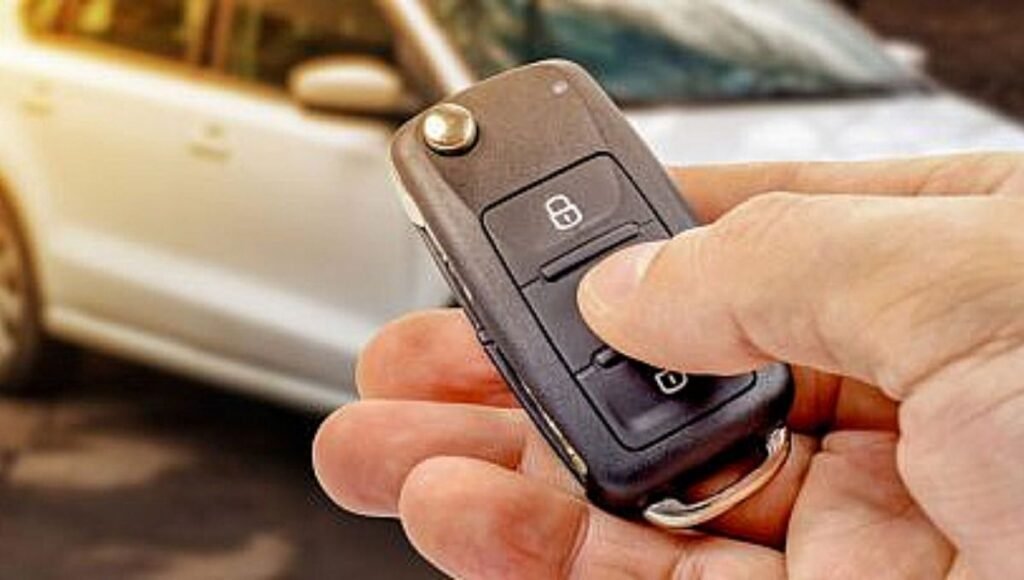
What is an Immobilizer System?
An immobilizer system is an electronic security device that prevents the engine from starting unless the correct key or key fob is present. This system works by utilizing a transponder chip embedded in the key, which sends a unique code to the vehicle’s ECU.
The ECU then compares this code with the one stored in its memory. If the codes match, the engine is allowed to start; if not, the immobilizer system blocks the ignition, fuel, or starter, rendering the vehicle immobile.
This technology has become a standard feature in most modern vehicles due to its effectiveness in preventing theft. The immobilizer system operates automatically, requiring no additional input from the driver, making it a convenient and reliable form of vehicle security.
How Immobilizer Systems Protect Your Vehicle from Theft:
Immobilizer systems are designed to thwart car thieves by making it extremely difficult to start the vehicle without the authorized key. When the correct key is inserted into the ignition or the key fob is brought near the vehicle, the immobilizer system sends a signal to the ECU.
The ECU then checks the code transmitted by the immobilizer against its stored code. If the codes match, the engine starts; if not, the system disables the vehicle’s critical components, such as the fuel pump or ignition, preventing the engine from running.
This high level of security has significantly reduced the number of stolen vehicles, as it requires sophisticated equipment and expertise to bypass the immobilizer system. In essence, the immobilizer system acts as a formidable barrier between your vehicle and potential thieves.
Key Components of the Immobilizer System:
The immobilizer system is composed of several key components, each of which plays a vital role in ensuring the system’s effectiveness. The transponder key or key fob contains the unique code that communicates with the vehicle’s ECU.
The antenna coil, typically located around the ignition barrel or integrated into the vehicle’s dashboard, detects the transponder key or key fob when it is in close proximity.
The immobilizer control unit processes the signal from the key and communicates with the ECU, determining whether the vehicle should be allowed to start.
Finally, the ECU acts as the vehicle’s central computer, storing the codes and making the final decision to enable or disable the engine’s critical components. These components work in unison to create a secure environment that protects the vehicle from unauthorized access.
read also: Car Alarm Goes Off When Charging Battery – Common Causes!
How Car Battery Power Impacts the Immobilizer System:
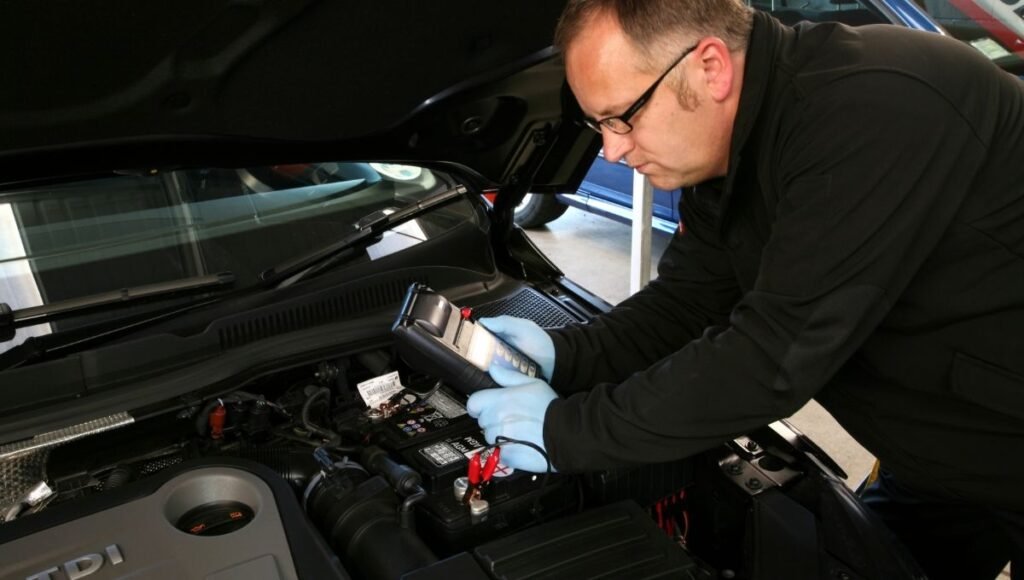
The Direct Connection Between the Car Battery and the Immobilizer:
The immobilizer system relies heavily on the car battery to function correctly. The battery provides the necessary power to the immobilizer control unit and the ECU, enabling them to communicate effectively.
When the ignition is turned on, the immobilizer system immediately checks for the correct key code before allowing the engine to start. This process requires a stable and sufficient power supply from the battery.
A healthy battery ensures that the immobilizer system operates seamlessly, allowing for a quick and secure engine start-up. However, any fluctuation in power supply can disrupt this process, leading to potential issues with vehicle security.
How a Weak or Failing Battery Can Disrupt Immobilizer Functionality:
A weak or failing battery can significantly impair the functionality of the immobilizer system. If the battery voltage drops below a certain threshold, the immobilizer control unit may not receive enough power to operate correctly.
This can result in the system failing to recognize the correct key, leading to difficulties in starting the engine. In some cases, the immobilizer may even engage incorrectly, falsely identifying an attempted theft and preventing the vehicle from starting altogether.
Therefore, maintaining a healthy battery is crucial for ensuring the proper operation of the immobilizer system and, by extension, the security of your vehicle.
Common Signs of Immobilizer Issues Related to Battery Problems:
There are several signs that may indicate that your immobilizer system is being affected by battery issues. Difficulty starting the vehicle is one such sign. If the engine cranks slowly or fails to start, it could be due to insufficient power reaching the immobilizer system.
Another sign is intermittent immobilizer activation, where the immobilizer light on the dashboard may flicker or stay on, signaling a problem with the system’s power supply.
Additionally, if your key fob is not detected by the system, it could be a result of a weak battery failing to provide enough power to the immobilizer. Recognizing these signs early can help prevent more significant issues and ensure your vehicle remains secure.
read also: Does Leaving USB Plugged in Car Drain Battery – Here’s the Answer!
Symptoms of Battery-Related Immobilizer Malfunctions:
Trouble Starting the Vehicle: Is it the Battery or the Immobilizer?
When you encounter trouble starting your vehicle, it can be challenging to determine whether the issue lies with the battery or the immobilizer system. A failing battery may not provide enough power to the starter motor, causing the engine to crank slowly or not at all.
On the other hand, if the immobilizer system doesn’t receive sufficient power from the battery, it may block the engine from starting altogether. In either case, the result is the same—difficulty or inability to start the vehicle.
To accurately diagnose the issue, it’s important to test both the battery’s voltage and the functionality of the immobilizer system.
Flickering Dashboard Lights and Their Connection to the Immobilizer:
Flickering dashboard lights are often a sign of an underlying electrical issue, commonly associated with a weak battery. When the battery struggles to supply consistent power, it can cause various electrical components, including the immobilizer system, to malfunction.
The immobilizer warning light may flicker or remain illuminated, indicating a problem with the system’s operation. If you notice flickering lights, it’s crucial to check the battery’s health, as this could be a precursor to more severe immobilizer issues.
Key Fob Malfunctions and Battery Power: What You Need to Know:
The key fob is an integral part of the immobilizer system, but if the car battery is weak, the system may fail to detect the key fob, preventing the engine from starting. Additionally, a low battery in the key fob itself can also cause communication issues with the immobilizer.
If you experience problems with the key fob, it’s advisable to check both the car battery and the key fob battery to ensure they are functioning correctly.
Preventive Measures to Protect Both Your Battery and Immobilizer System:

Regular Battery Maintenance: Keeping Your Immobilizer in Check:
Regular battery maintenance is essential to ensuring the longevity and reliability of your immobilizer system. This includes checking the battery terminals for corrosion, ensuring a secure connection, and testing the battery’s voltage regularly.
Keeping the battery in optimal condition helps prevent the immobilizer system from malfunctioning due to insufficient power.
Tips for Testing Your Battery’s Health and Preventing Immobilizer Issues:
Testing your battery’s health involves checking its voltage and overall condition. A sound battery ought to perused around 12.6 volts when the motor is off and between 13.7 to 14.7 volts when the motor is running. If the voltage is low, it may be time to consider a replacement.
Additionally, using a multimeter to test the battery can help identify potential issues before they affect the immobilizer system. Regular testing can prevent unexpected battery failures and ensure that your immobilizer system remains operational.
How to Avoid Common Mistakes That Lead to Immobilizer Problems:
Avoiding common mistakes, such as leaving electrical components on when the engine is off, can help preserve your battery’s health and prevent immobilizer issues.
Additionally, avoid using a battery that is too old or has insufficient capacity to power your vehicle’s advanced electronic systems. Ensuring that your battery is compatible with your vehicle’s requirements is crucial for maintaining the immobilizer system’s functionality.
read also: Can a Bad Battery Cause Surging – The Hidden Danger!
FAQ’s
1. How does a weak car battery impact the immobilizer system?
A weak battery can cause the immobilizer system to malfunction by not providing enough power to recognize the key, leading to difficulties in starting the vehicle
2. What are the signs that my immobilizer system is affected by a battery problem?
Common signs include difficulty starting the vehicle, flickering dashboard lights, and the immobilizer warning light staying on or flickering.
3. Can a failing car battery cause the immobilizer system to block the engine from starting?
Yes, if the immobilizer system doesn’t receive sufficient power from the battery, it may prevent the engine from starting altogether.
4. What should I do if my immobilizer system fails due to a battery issue?
First, check the battery’s voltage. If it’s low, try jump-starting the vehicle. If the issue persists, you may need to reset the immobilizer system.
5. Why is regular battery maintenance important for the immobilizer system?
Regular maintenance ensures the battery remains in optimal condition, preventing the immobilizer system from malfunctioning due to insufficient power.
Conclusion:
Maintaining a healthy car battery is essential for the proper functioning of the immobilizer system, which plays a critical role in vehicle security. A weak or failing battery can disrupt this system, leading to starting issues and potential security risks. Regular battery maintenance is key to ensuring reliable vehicle operation and safety.
Read Also:
Does Leaving Car Lights on Auto Drain Battery – The Truth Revealed!What Gauge Wire to Connect 12V Batteries in Parallel – Complete Guide!
When a Car Battery Tests Good but Still Fails – A Common Reason!
Why the Battery Light Stays On When Ignition Is Off in Silverado – Here’s Why!
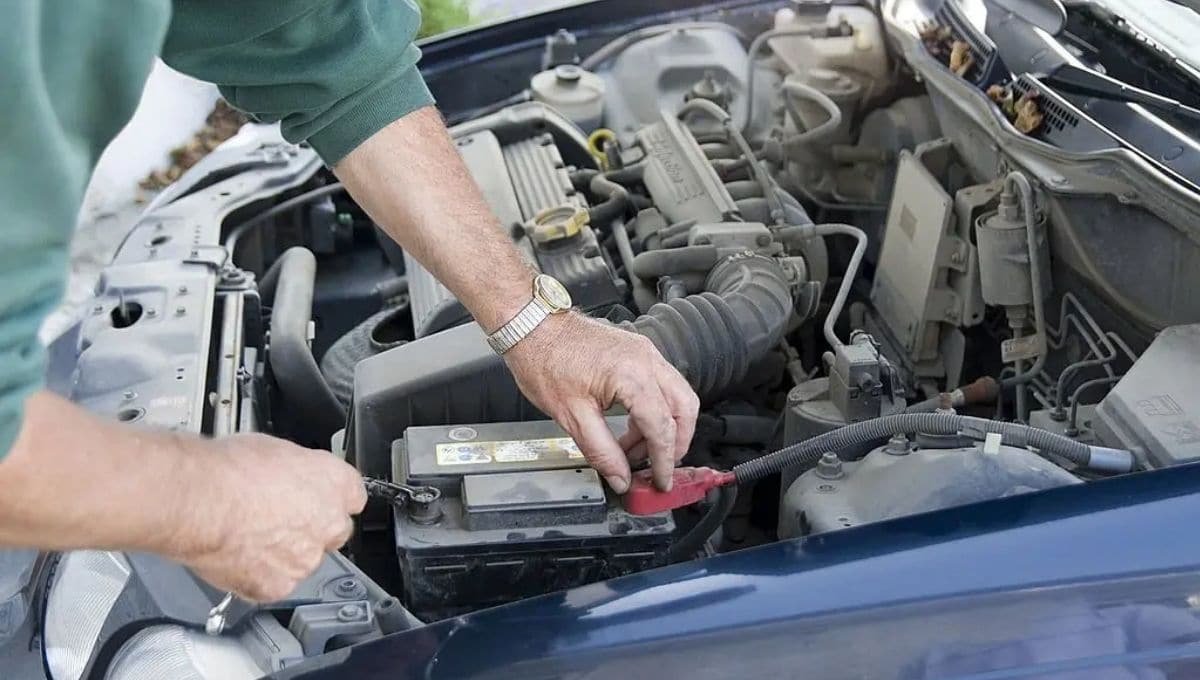

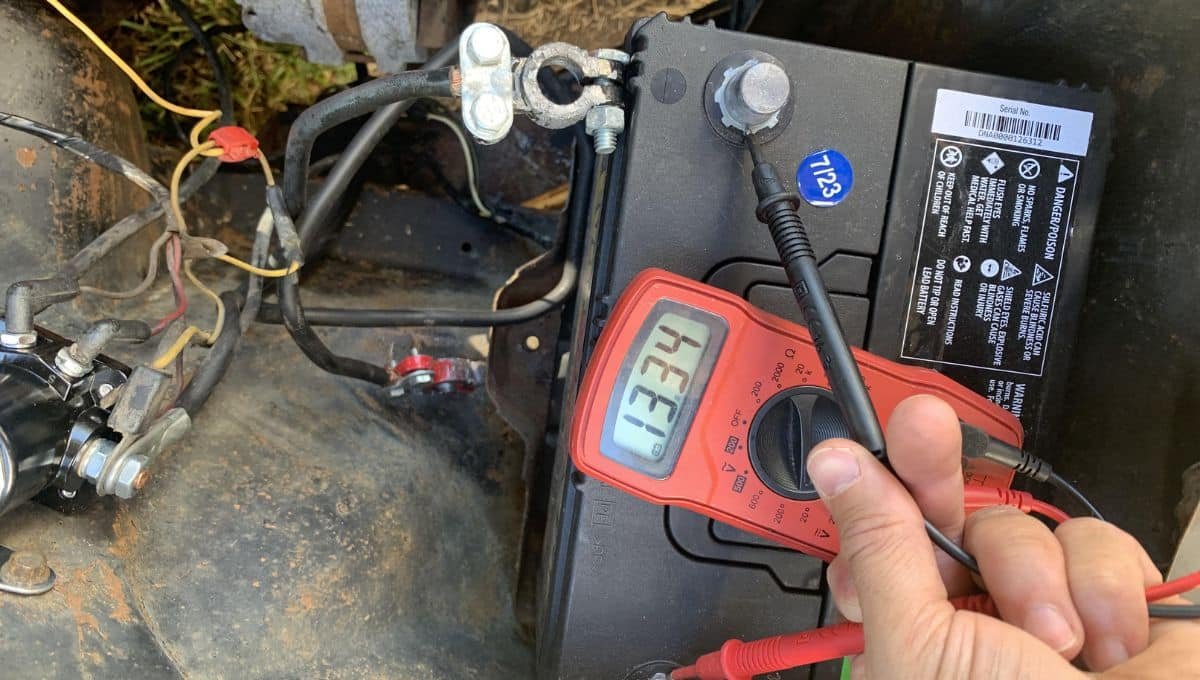


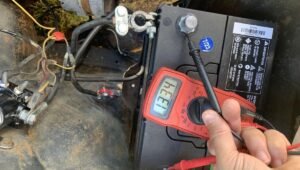

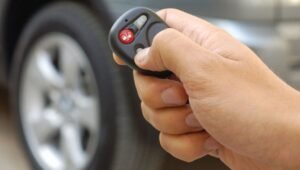
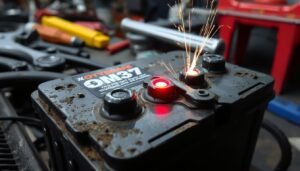

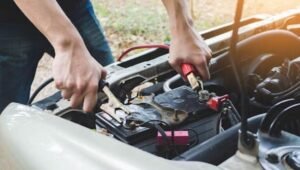
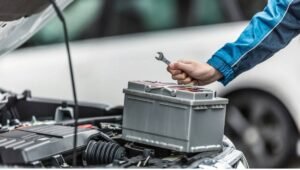
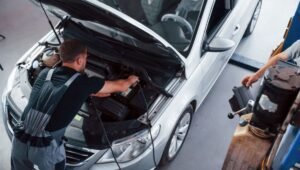
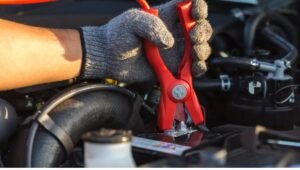
Post Comment